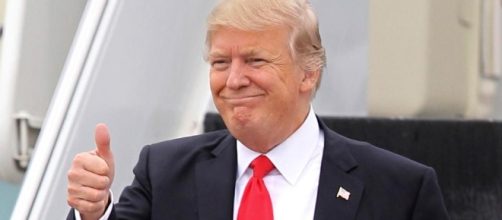There is a horse in South Africa that the owner named “President Trump.” He is a two-year-old racehorse still in training. However, because “President Trump” has been acting up in training, his owners had the unruly animal gelded.
Horse was very vocal and not focused
The Telegraph explained that gelding is a term used by racehorse owners. It is castration or removing the testicles of a male animal or a man. The owner said the young horse was very vocal and refused to focus on his training. The owner considered placing blinkers and using a tongue-tie to tame "President Trump," according to the Racing Post, a horse-racing newspaper in Britain.
Gelding of horses is a technique used by animal owners to subdue horses, like “President Trump," which are unruly. While the National Horseracing Authority of South Africa did not object to the horse being gelded – which some women’s groups, who are aware of a rape complaint by a 13-year-old girl against the real Donald Trump, want to also castrate the billionaire – the NHA objected to using “Donald Trump” as name for the unwieldy horse three days after he was gelded.
New name
"Potus" was one of the new names considered for the horse, but the owners and NHA eventually agreed to call the horse “Fake News,” according to Samantha Dames, naming registrar of NHA. Dames pointed out that “Potus” could not be used since it is an acronym for “President of the United States,” Racing Post reported.
Meanwhile, Katie Johnson, the accuser of the real Potus, eventually dropped the case against Donald Trump in October 2016, helping pave the way for his electoral victory. Besides being accused of being sexist, the real estate tycoon has also been accused of being a racist, homophobic and Islamophobic.
Although Trump has denied the accusation, ironically, a new PBS documentary, “The Choice,” by biographer Michael D’Antonio, wrote that the president was taught by his father at a young age that some people have superior genetic makeup that their clan possesses which explains their success. The theory, incidentally, is called the “racehorse theory.”

